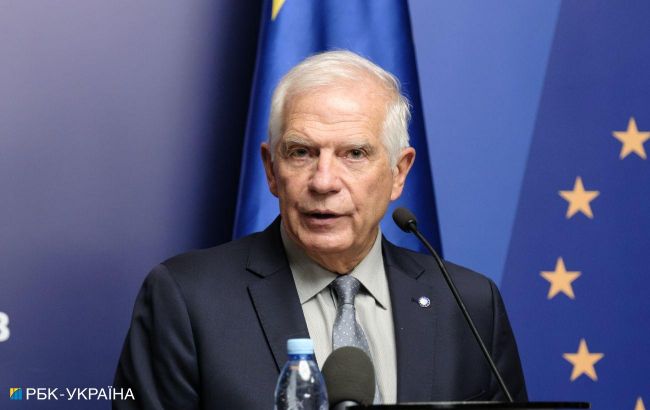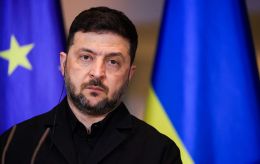EU to promote Ukraine help plan using Russian assets regardless of US
 Josep Borrell (Vitalii Nosach, RBC-Ukraine)
Josep Borrell (Vitalii Nosach, RBC-Ukraine)
The European Union will insist on fulfilling its commitments to provide assistance to Ukraine using frozen Russian assets, regardless of concerns raised by the United States, according to EU High Representative for Foreign Affairs Josep Borrell.
"We will do whatever we can to support Ukraine, regardless of decisions in Washington. Ukraine needs to boost their defense capacities — and they need it now," Borrell told reporters in Brussels ahead of a meeting of EU foreign ministers when asked about the US stance.
The G7 agreement on using proceeds from frozen assets has faced delays as Washington seeks stronger guarantees that the EU can continue sanctions despite opposition from Hungary.
The US wants to ensure that a plan aimed at securing $50 billion in loans for Kyiv will be implemented before it is approved by Congress.
The G7 plan, adopted at the June summit, aimed to channel funds by the end of the year. EU ministers in Brussels will be presented with two options for freezing Kremlin assets for an extended period in an attempt to reassure the U.S., Bloomberg reported.
Brussels meeting
The agenda of the ministerial meeting in Brussels includes the potential lifting of restrictions on Western weapon strikes on Russian territory. Some member states remain reluctant to relax the rules, citing the risk of escalation.
Ukrainian Foreign Minister Dmytro Kuleba, who is attending the meeting, expressed frustration over delays in military equipment deliveries, urging member states to send the promised air defense systems. Russia continues to target the country’s war-damaged energy infrastructure as winter approaches.
Kuleba said that he would assure allies that if such permission is granted, Ukraine would only target military objectives and focus on limiting Russia's strike capabilities.
"We need bold decisions from our allies, and if you are unable to make these decisions, don’t blame Ukraine, blame yourselves," Kuleba told reporters in Brussels.
Borrell also mentioned that he is seeking ways to bypass Hungary’s opposition to allocating another €6 billion in aid to Ukraine, a topic previously discussed by member states.
Earlier, Euractiv reported that negotiations to allocate $50 billion to Ukraine using Russian assets have been slow due to US concerns about how long the frozen assets will remain under sanctions. This is related to the need for the EU to renew sanctions every six months, a process that Hungary could potentially veto.

